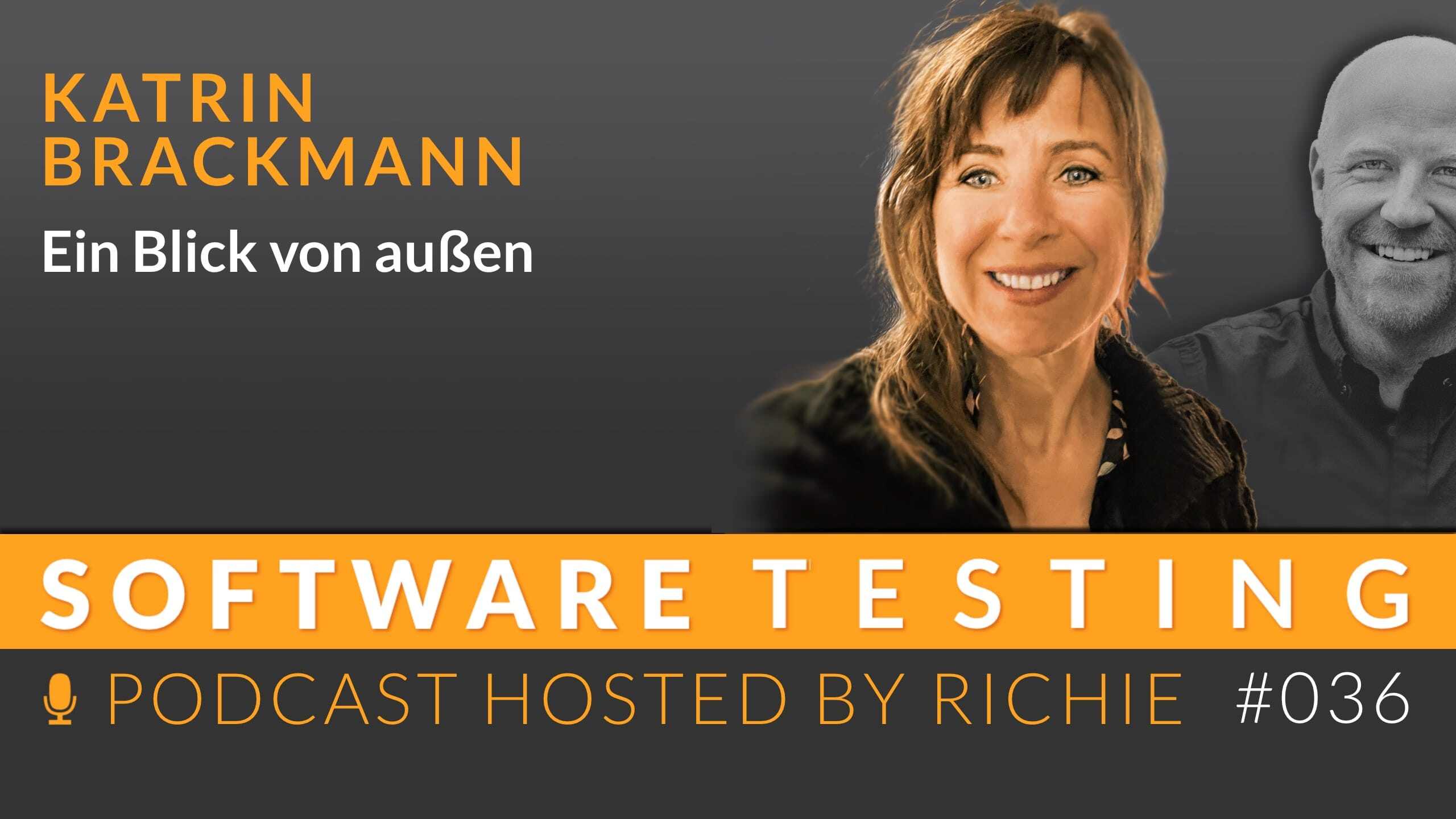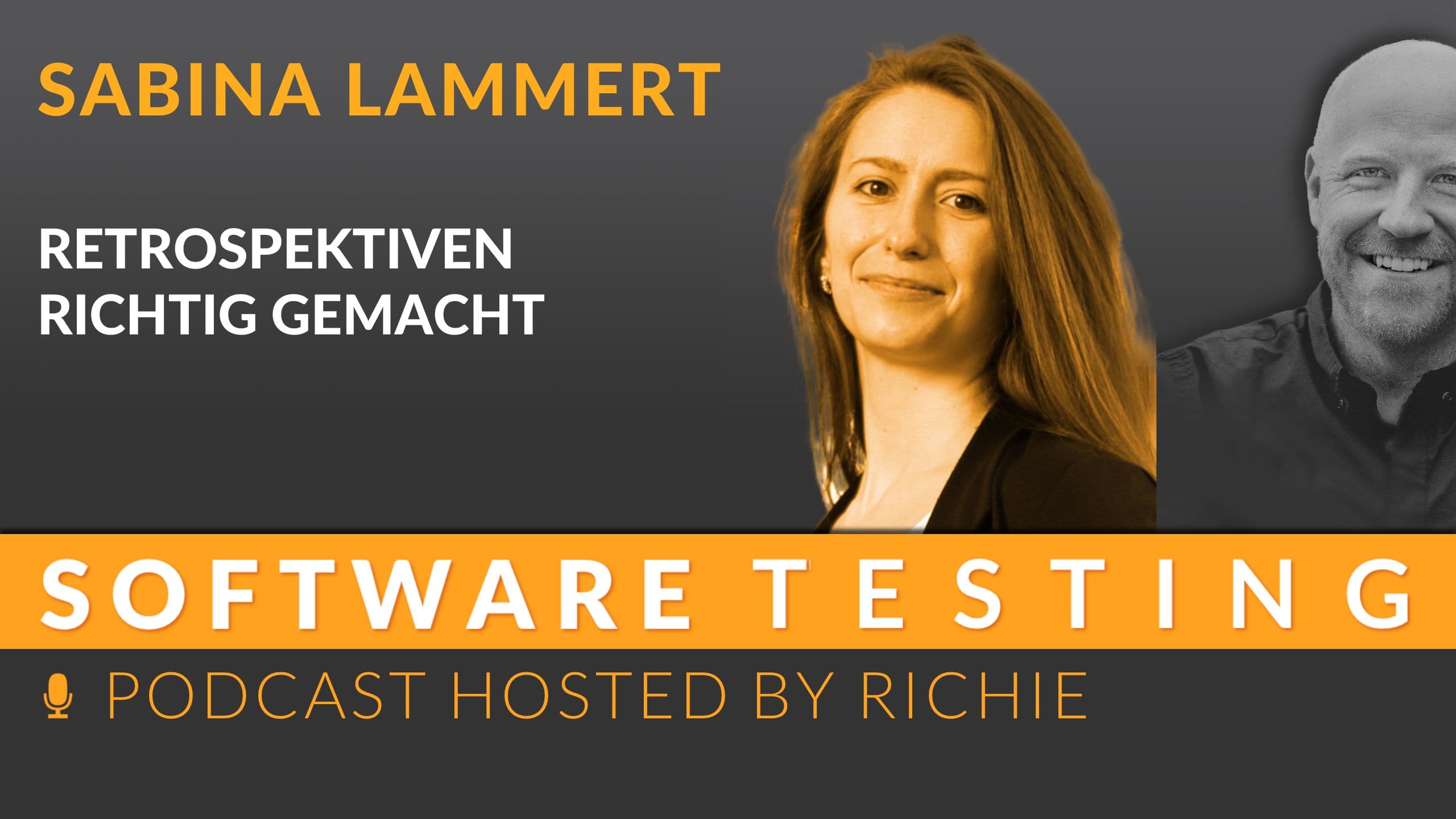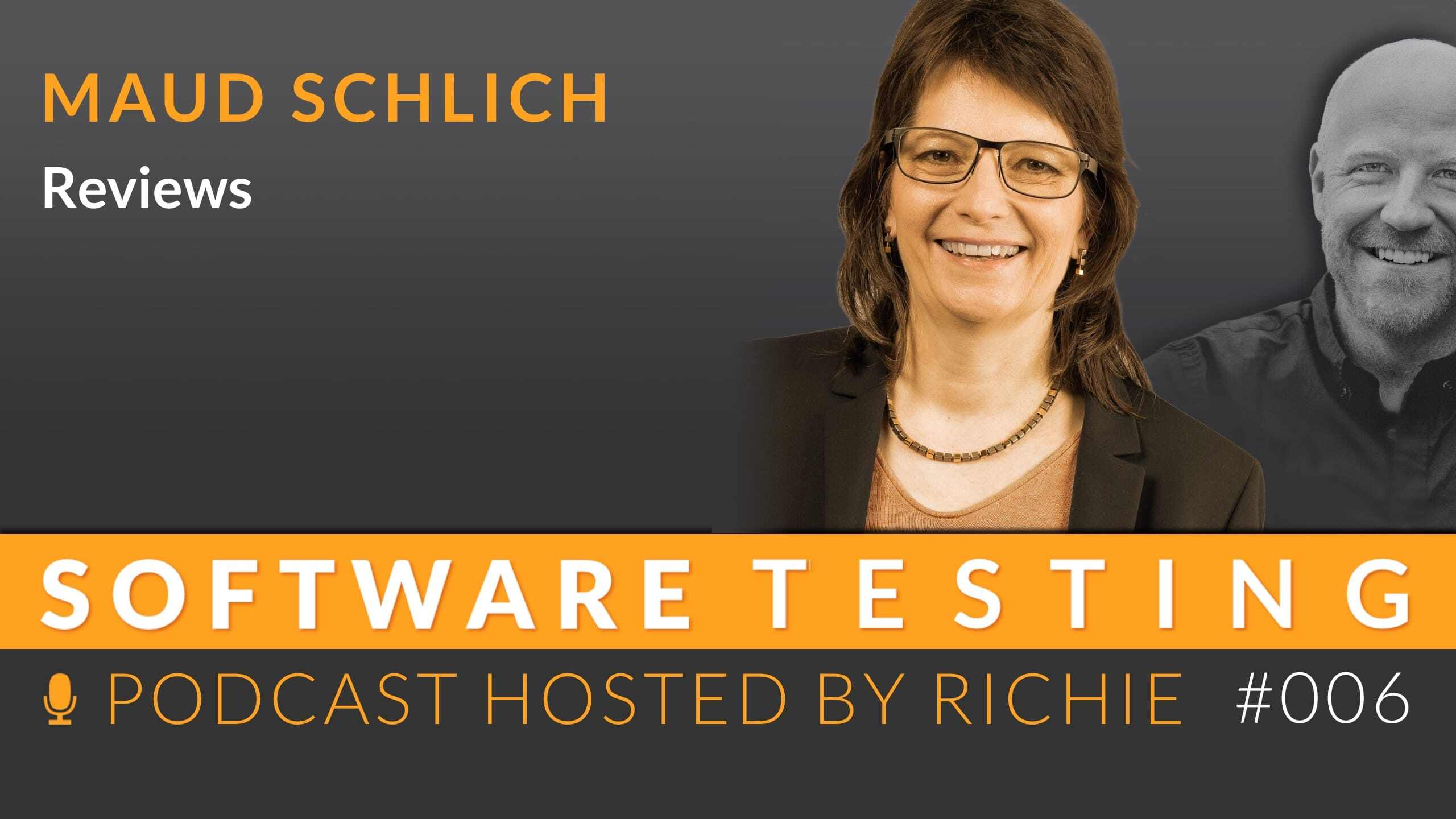Retrospectives done right
Retrospectives serve as a central building block for continuous improvement in teams and organizations. They create a safe space in which different...

Katrin is an artist, coach and communication designer, and has also been my partner for several years. While my listeners and I are right in the thick of things, today Katrin takes a look at software testing from the outside. Because she is also involved in software testing. After all, she has been working with a software tester for 6 years. So she sees many parallels to the coaching profession and she sheds light on my passion - the podcast - as an outsider.
"Then you start running and testing something, and then, unfortunately too late, you realize - in coaching we call it a map change - that you've suddenly changed levels." - Katrin Brackmann
Katrin Brackmann studied at the Folkwang Academy of the Arts in Essen. She created numerous internet presences for well-known companies and federal ministries and was one of the pioneers of the digital awakening at the beginning of 2000. Her cognitive science training (reality construction, psychology) is now incorporated into her work as an artist."We do not see things as they are, but as we are." This quote from the Talmud describes well the attitude with which Brackmann explores the boundaries of perception and world views in her paintings.
In this special podcast episode, I discuss with Katrin Brackmann, an artist with no direct connection to software testing, her perspective on the topic, the importance of mistakes and parallels between software testing and coaching. Katrin's unique perspective offers interesting insights and emphasizes the importance of learning from mistakes.
Katrin brought a fresh perspective to the table. With no direct connection to software testing or the IT world, she offered valuable insights through her observations and experiences as someone who is familiar with the topic 'second-hand'. Her approach to the topic of software testing was characterized by curiosity and a desire to learn more about how quality is practiced in other areas. Her stories about the challenges of explaining what her partner does for a living were both amusing and insightful.
Interestingly, Katrin drew parallels between her work as an artist and coach and software testing. She reflected on the coaching framework model and how similar approaches can be applied in software testing - particularly in terms of clarifying the brief and setting objectives. This comparison opened up a discussion about the transferability of methods between completely different disciplines.
A central topic of our discussion was learning from mistakes. Katrin emphasized the importance of seeing mistakes as opportunities for improvement - an attitude that is valuable in both art and software testing. She shared personal anecdotes about how mistakes can open new paths and why it is crucial to give them space. These insights underscored the universal importance of a positive error culture for growth and innovation.
Katrin asked me about my motivations for creating the 'Software Testing' podcast. I explained that my main motivation is to learn and share this knowledge. By talking to experts from the industry, I want to make information accessible and at the same time create a platform for exchange. The feedback from the community encourages me that this approach is valuable - both for me personally and for our listeners.
In summary, this conversation with Katrin shows that quality is a universal concept - regardless of the field. Her insights from outside the IT industry enrich our understanding of what it means to live quality. It also highlights the importance of learning from mistakes and constantly striving for improvement.

Retrospectives serve as a central building block for continuous improvement in teams and organizations. They create a safe space in which different...

Podcast Episode: Efficient Form Testing In this episode, we discuss the challenges and solutions when testing forms. How can the tester of an immense...

Podcast Episode: Reviews Maud is an expert in reviews. In this interview, we talk about different review types and reading techniques. Among other...